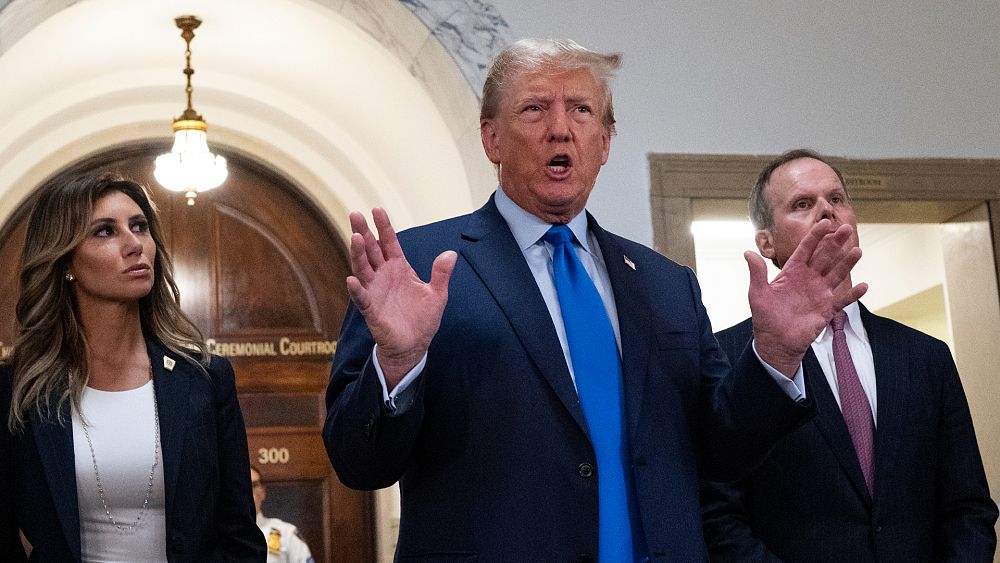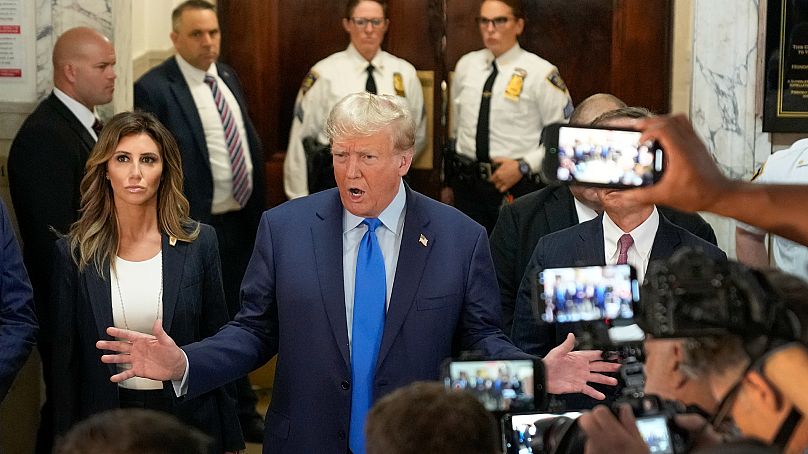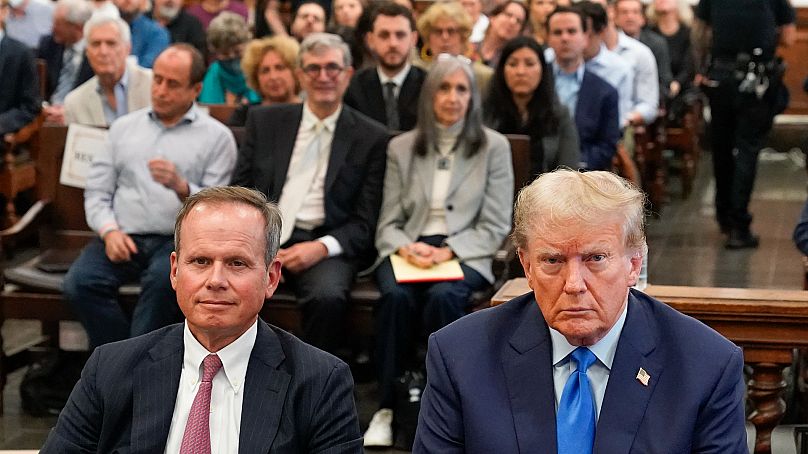
The fraud lawsuit that could cost former US President Donald Trump control of some of his most prized properties went on trial Monday, with New York state lawyers vowing to hold him accountable while he denounced the case as a politically motivated “scam.”
The civil case, brought by New York Attorney General Letitia James, accuses the business mogul turned politician and his company of deceiving banks, insurers and others by habitually misstating his wealth in financial statements.
“They were lying year after year after year,” Kevin Wallace, a lawyer in James’ office, said in an opening statement as Trump sat at the defence table.
Trump showed up voluntarily for the trial, with his control over Trump Tower and some other major real estate holdings in jeopardy.
“This is a continuation of the single greatest witch hunt of all time,” the Republican said as he approached the courtroom, reiterating claims that James, a Democrat, is trying to thwart his return to the White House.
“It’s a scam. It’s a sham,” Trump said. He called the case “an attempt to hurt me in an election” and added: “I don’t think the people of this country are going to stand for it.”

Judge Arthur Engoron already has ruled that Trump committed fraud in his business dealings. Last week’s ruling, if upheld on appeal, could force Trump to give up New York properties including Trump Tower, a Wall Street office building, golf courses and a suburban estate. Trump has called it a “corporate death penalty” and insisted the judge is unfair and out to get him.
It is a non-jury trial, so Engoron will decide on six other claims in the lawsuit. James is seeking $250 million in penalties and a ban on Trump doing business in New York.
Before the trial Monday, James reiterated her position that Trump for years engaged in “persistent and repeated fraud.”
“No matter how powerful you are, and no matter how much money you think you have, no one is above the law,” she said on her way into the courthouse.
In her office’s opening statement, Wallace placed Trump squarely at the centre of the alleged financial fudging: “Every estimate was determined by Mr. Trump.”
Trump, the Republican front-runner in the 2024 presidential race, has denied wrongdoing. He says that James and the judge are undervaluing such assets as his Palm Beach, Florida, resort, Mar-a-Lago, and that it didn’t matter what he put on his financial statements because they have a disclaimer that says they shouldn’t be trusted.

James’ lawsuit accused Trump and his company of a long list of falsehoods in the financial statements he gave to banks. In a recent court filing, James’ office alleged Trump exaggerated his wealth by as much as $3.6 billion.
Among the allegations was that Trump claimed his Trump Tower apartment in Manhattan – a three-story penthouse replete with gold-plated fixtures – was nearly three times its actual size and worth an astounding $327 million. No apartment in New York City has ever sold for close to that amount, James said.
Trump valued Mar-a-Lago as high as $739 million – more than 10 times a more reasonable estimate of its worth, James claimed. Trump’s figure for the private club was based on the idea that the property could be developed for residential use. While Trump lives there, deed terms prohibit further residential development on the property, James said.
He and his lawyers have also argued that no one was harmed by anything in the financial statements. The banks he borrowed money from were fully repaid. Business partners made money. And Trump’s own company flourished.
James’ lawsuit is one of several legal headaches for Trump as he campaigns for a return to the White House in next year’s election. He has been indicted four times since March, accused of plotting to overturn his 2020 election loss to Democrat Joe Biden, hoarding classified documents and falsifying business records related to hush money paid on his behalf.
The New York fraud trial could last into December, Engoron said.





